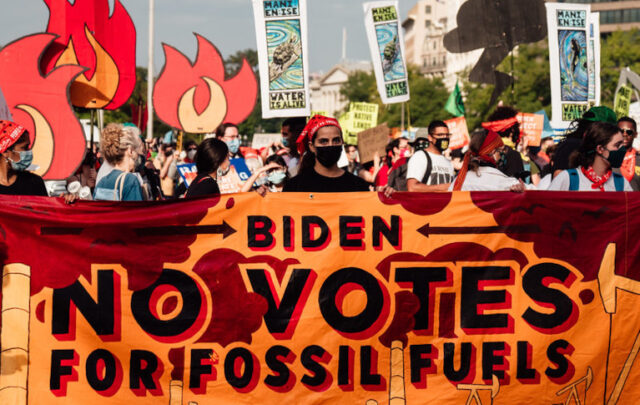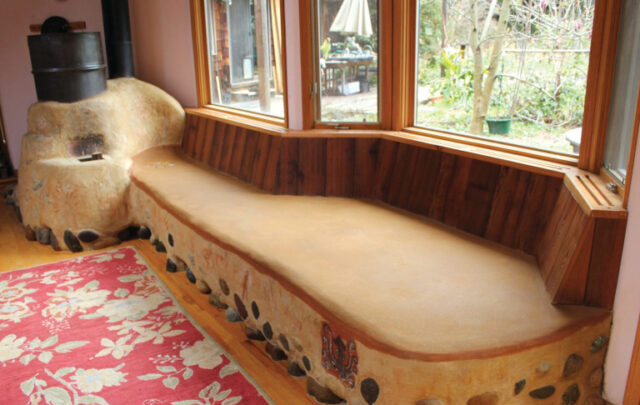Click on the headline (link) for the full text.
Many more articles are available through the Energy Bulletin homepage.
Implementing local solutions, one neighborhood at a time.
Morgan Fitzgibbons, 350.org
The following is a guest blog from our friend Morgan Fitzgibbons, a fellow proponent of local climate solutions here in California’s Bay Area. He’s one of the founding members of the Wigg Party, a community organization dedicated to transforming a San Francisco neighborhood from “business as usual” into a model for sustainability and resilience. Through his work with the Wigg Party, Morgan is working to develop a set of guidelines for transition that could be applied to any neighborhood, and he wanted to share his insights on how to organize a neighborhood with the 350 network:

In late 2009, a few friends and I got together and decided we needed to do something. Each of us were well aware of the various planetary crises – the onset of the sixth mass extinction, dwindling access to fresh water, incredibly unsustainable industrial agriculture practices, and, yes, the mounting dangers of global climate change, to name just a few. Each of us felt these global challenges demanded not only our awareness but some sort of action that could help win the possibility of a decent quality of life for future generations of humans. There was just one problem: these challenges were global in nature, and we were just a few friends sitting in a living room in San Francisco. How could we reasonably expect to make a dent in these planetary issues?
We knew we were up to the task of one very important and worthy mission – we set out to make our neighborhood more sustainable and resilient. Over a year later, we’ve crafted out of that original intention an influential organization called the Wigg Party. We’ve produced a number of successful initiatives and events, made a few mistakes, and have come to one very important conclusion: the future of our society depends on you doing the exact same thing in your community. We offer our story so that it may inspire you, help you figure out how to get started, and, most importantly, show you how great life can be when you stop asking others to change the course we’re on and get started on all the things you have the power to change today. Only when we have all begun to instigate transformation in our local communities will the “powers-that-be” make the important policy decisions required to avoid the pending cataclysm.
Over the past year, the Wigg Party has developed various programs aimed at making the community surrounding the San Francisco bicycle route the Wiggle a leader in the transformation to sustainability and resilience. While we produce various organization-wide events, most notably our monthly meeting/social event dubbed the Wigg Party Party, most of the work we do takes place in distinct working groups, each aimed at developing a specific aspect of a resilient community. These working groups are:
Sustainable Business – This group works to improve the business practices of the local merchants. Our main tactic in this endeavor is to produce events called Carrotmobs. We “mob” businesses from time to time because they are committing a percentage of their profits from the time we are there to reinvest in their business to make it more sustainable, whether that’s energy efficiency or buying more local food. We’re also developing a local currency. The key here is to use the potential purchasing power of a group to sway businesses.
(15 February 2011)
Suggested by Lori W. -BA
Totnes: Britain’s town of the future
Lucy Siegle, The Observer
Totnes in Devon might be the most forward-thinking eco settlement in the world. As fossil-fuel reserves dwindle and the economy contracts, will resident-led Transition Towns become the way that we all live?
—
Totnes is an ancient market town on the mouth of the river Dart in Devon. It has the well- preserved shell of a motte-and-bailey castle, an Elizabethan butterwalk and a steep high street featuring many charming gift shops. All of which makes it catnip to tourists. A person might initially be lulled into the belief that this was somewhere with as much cultural punch as, say, Winchester.
But bubbling below the surface is a subversive hub of alternative living, a legacy of the radical goings-on from Dartington Hall, just down the road, where Dorothy and Leonard Elmhirst’s vision of a rural utopia gathered steam in the 1920s. Indeed, there are more new age “characters” than you can shake a rain stick at, more alternative-therapy practitioners per square inch than anywhere else in the UK and the town was once named “capital of new age chic” by Time magazine.
My family moved here when I was 10. A child of relentlessly suburban mindset, I found the town’s granola outlook unsettling. I balked at the indigenous footwear worn by Totnesians – multicoloured pieces of hand-stitched leather called “conkers” – and longed for a world where it was not atypical to own a TV and talk about Dallas rather than nuclear disarmament. My fear growing up in this neck of the woods was that people would continue to get even weirder. So it was probably just as well that I had left when Rob Hopkins arrived in 2005 and let loose the Great Unleashing, aka the launch of Transition Town Totnes (TTT).
Six years on, the Transition initiative, which attempts to provide a blueprint for communities to enable them to make the change from a life dependent on oil to one that functions without, seems to me one of the most viable and sensible plans we have for modern society.
(6 February 2011)
One on One: Jane McGonigal, (Peak Oil) Game Designer
Nick Bilton, New York Times
… As someone who builds games, what draws you to them?
Gamers want real opportunities to do extraordinary things. They want to solve problems. Seeing this led me to work at the Institute for the Future in Palo Alto, Calif., to explore a new type of game that involved the real world.
What do you mean by the real world?
There weren’t really any games that offered a bridge between gaming and reality — games that could bridge the gap between being a hero in a game and doing something heroic in the real world. So I started investigating how to create that bridge.
Were you able to build such a game?
Yes. I created World Without Oil, which was a six-week simulation of a peak-oil scenario, where demand outstrips supply of oil. Players signed up for six weeks and were asked to imagine living in a world without oil and document the experience. We were able to convince 1,700 people to do that, and they created thousands of videos and blog posts explaining how they were playing the game and coming up with creative solutions to the problem.
How did that move into the real world?
When we had the real gas crisis in the United States a year later, the people who had played the game were able to implement their oil-saving techniques that they had learned from the game. We reached out to some of these people and found out that they had a strategy in place and coped better than their neighbors.
(8 February 2011)
Will Carbon Nation succeed where An Inconvenient Truth failed?
Sylvia Rowley, Guardian
“Bin Laden hates this car” says the bumper sticker on former CIA director Jim Woolsey’s plug-in hybrid. Though he’s no longer in the secret service, Woolsey cares about defending America’s national security, and for him that means weaning the country off its dependence on foreign oil.
The former spook turned clean-tech venture capitalist is just one of the all-American heroes who feature in Carbon Nation, an intriguing new documentary about climate change solutions aimed at the American right.
Touring the States after its premiere last night , Carbon Nation bills itself as an “optimistic, solutions-based, non-preachy, non-partisan” film.
(11 February 2011)
Drive: The surprising truth about what motivates us (RSA video)
Dan Pink, RSA
This lively RSAnimate, adapted from Dan Pink’s talk at the RSA, illustrates the hidden truths behind what really motivates us at home and in the workplace.
(April 2010)
Related: Smile or Die – Barbara Ehrenreich talk also from RSA.





